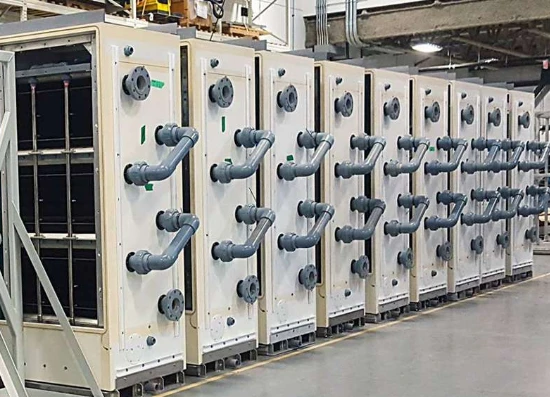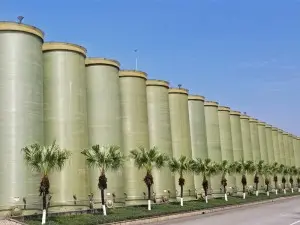
-
 Afrikaans
Afrikaans -
 Albanian
Albanian -
 Amharic
Amharic -
 Arabic
Arabic -
 Armenian
Armenian -
 Azerbaijani
Azerbaijani -
 Basque
Basque -
 Belarusian
Belarusian -
 Bengali
Bengali -
 Bosnian
Bosnian -
 Bulgarian
Bulgarian -
 Catalan
Catalan -
 Cebuano
Cebuano -
 China
China -
 China (Taiwan)
China (Taiwan) -
 Corsican
Corsican -
 Croatian
Croatian -
 Czech
Czech -
 Danish
Danish -
 Dutch
Dutch -
 English
English -
 Esperanto
Esperanto -
 Estonian
Estonian -
 Finnish
Finnish -
 French
French -
 Frisian
Frisian -
 Galician
Galician -
 Georgian
Georgian -
 German
German -
 Greek
Greek -
 Gujarati
Gujarati -
 Haitian Creole
Haitian Creole -
 hausa
hausa -
 hawaiian
hawaiian -
 Hebrew
Hebrew -
 Hindi
Hindi -
 Miao
Miao -
 Hungarian
Hungarian -
 Icelandic
Icelandic -
 igbo
igbo -
 Indonesian
Indonesian -
 irish
irish -
 Italian
Italian -
 Japanese
Japanese -
 Javanese
Javanese -
 Kannada
Kannada -
 kazakh
kazakh -
 Khmer
Khmer -
 Rwandese
Rwandese -
 Korean
Korean -
 Kurdish
Kurdish -
 Kyrgyz
Kyrgyz -
 Lao
Lao -
 Latin
Latin -
 Latvian
Latvian -
 Lithuanian
Lithuanian -
 Luxembourgish
Luxembourgish -
 Macedonian
Macedonian -
 Malgashi
Malgashi -
 Malay
Malay -
 Malayalam
Malayalam -
 Maltese
Maltese -
 Maori
Maori -
 Marathi
Marathi -
 Mongolian
Mongolian -
 Myanmar
Myanmar -
 Nepali
Nepali -
 Norwegian
Norwegian -
 Norwegian
Norwegian -
 Occitan
Occitan -
 Pashto
Pashto -
 Persian
Persian -
 Polish
Polish -
 Portuguese
Portuguese -
 Punjabi
Punjabi -
 Romanian
Romanian -
 Russian
Russian -
 Samoan
Samoan -
 Scottish Gaelic
Scottish Gaelic -
 Serbian
Serbian -
 Sesotho
Sesotho -
 Shona
Shona -
 Sindhi
Sindhi -
 Sinhala
Sinhala -
 Slovak
Slovak -
 Slovenian
Slovenian -
 Somali
Somali -
 Spanish
Spanish -
 Sundanese
Sundanese -
 Swahili
Swahili -
 Swedish
Swedish -
 Tagalog
Tagalog -
 Tajik
Tajik -
 Tamil
Tamil -
 Tatar
Tatar -
 Telugu
Telugu -
 Thai
Thai -
 Turkish
Turkish -
 Turkmen
Turkmen -
 Ukrainian
Ukrainian -
 Urdu
Urdu -
 Uighur
Uighur -
 Uzbek
Uzbek -
 Vietnamese
Vietnamese -
 Welsh
Welsh -
 Bantu
Bantu -
 Yiddish
Yiddish -
 Yoruba
Yoruba -
 Zulu
Zulu
frp tank
FRP (Fiberglass Reinforced Plastic) tanks are revolutionizing the storage and handling industries with their unparalleled benefits. As a seasoned professional with extensive expertise and authority in this domain, I will delve deeper into why FRP tanks are gaining prominence, drawing on both experiential insights and technical knowledge to provide a comprehensive overview.

One of the most compelling reasons for the growing adoption of FRP tanks is their superior corrosion resistance. Unlike traditional materials like steel, which are susceptible to rust and degradation, FRP tanks are inherently resistant to a wide array of chemical aggressors. This resilience not only extends the life expectancy of the tanks but also drastically reduces maintenance costs, a crucial consideration for industries handling corrosive substances.
From personal experience, having seen FRP tanks employed in diverse sectors ranging from chemical processing to wastewater treatment, I can attest to their versatility. The customizable design of FRP tanks allows them to be tailored to specific operational needs. Whether it's altering the dimension to fit constrained spaces or modifying the resin composition to withstand particular chemicals, the adaptability of FRP tanks is unparalleled. This bespoke manufacturing capability provides businesses with storage solutions that seamlessly integrate with their existing operations.

In terms of structural integrity and strength, FRP tanks do not disappoint. Despite their lightweight nature, they boast impressive tensile strength and durability, ensuring they can withstand challenging environments. Particularly in seismic zones, the reduced weight of FRP tanks lessens the seismic loads, significantly minimizing the risk of structural failure. This attribute underscores the reliability and trustworthiness of FRP tanks as a safe storage option.
frp tank
Furthermore, the installation process of FRP tanks is notably efficient. Their lightweight nature simplifies transportation and set-up, reducing the downtime associated with conventional tank installations. Having overseen several projects, I can affirm that the ease of installation translates to cost savings and quicker turnaround times, enabling businesses to swiftly resume their core operations.
The use of FRP tanks also speaks to a commitment to sustainability. Their long lifespan and minimal maintenance requirements result in lower resource consumption over time. Additionally, the manufacturing process of FRP is comparatively energy-efficient, reducing the overall carbon footprint associated with their production. Companies aiming to bolster their green credentials will find FRP tanks to be an environmentally responsible choice.
Trust in FRP tanks is further solidified by rigorous testing and quality assurance protocols during production. The adherence to international standards ensures that each tank delivers consistent performance, reinforcing their reputation for quality and safety in demanding applications.
In conclusion, FRP tanks embody a blend of innovative design, robust performance, and environmental sustainability. Their ability to withstand corrosion, adaptability to various operational needs, and minimal maintenance requirements make them an invaluable asset across multiple industries. With a proven track record of reliability and efficiency, FRP tanks are setting a new standard in the storage and handling solutions arena. Embracing this technology not only reflects a strategic business decision but also a forward-thinking approach to operational challenges.
Latest news
-
Exploring the Benefits of Top Hammer Drifter Rods for Enhanced Drilling PerformanceNewsJun.10,2025
-
High-Precision Fiberglass Winding Machine for GRP/FRP Pipe Production – Reliable & Efficient SolutionsNewsJun.10,2025
-
FRP Pipes & Fittings for Shipbuilding - Corrosion-Resistant & LightweightNewsJun.09,2025
-
Premium FRP Flooring Solutions Durable & Slip-ResistantNewsJun.09,2025
-
Premium Fiberglass Rectangular Tanks Durable & Lightweight SolutionNewsJun.09,2025
-
Tapered Drill String Design Guide Durable Performance & UsesNewsJun.09,2025









